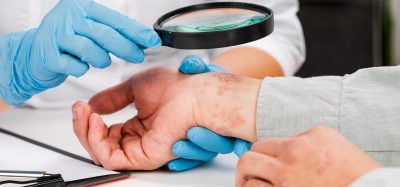Pioneering cellular therapies for age-related diseases
Posted: 18 April 2025 | Drug Target Review | No comments yet
Discover how Immorta Bio’s cellular therapies are addressing cancer and liver failure, with the potential to transform healthcare.


Recent years have witnessed remarkable advancements in cellular therapies, particularly in the development of treatments that harness the power of stem cells and the immune system. At the forefront of these innovations is Dr Thomas Ichim, a distinguished expert in biotechnology and stem cell therapy at Immorta Bio. With an extensive background in these fields, Ichim is dedicated to advancing personalised cellular therapies aimed at addressing age-related diseases, with a special focus on cancer and liver failure.
As President and Chief Scientific Officer of Immorta Bio, Ichim is leading the charge in the development of cutting-edge therapies. In this interview, he offers valuable insights into the company’s groundbreaking work and the promising future of cellular therapeutics, including the ongoing development of two of its key platforms: SenoVax™ and Stem Cell Revivify™. These platforms aim to combat diseases such as cancer and liver failure, offering new hope to patients through personalised, regenerative treatments.
Tumour-associated senescent cells
Ichim’s work focuses on the role of senescent tumour cells (STCs) – these are cells in cancer tissue that have permanently stopped dividing yet have been shown to promote tumour progression and resist treatment. “The tumour has been shown to induce accelerated ageing of cells surrounding the tumour,” Ichim explains. “The concept of the tumour microenvironment has been around for a long time now, and basically the idea is that the tumour is not going to grow by itself, but it relies on various host-derived factors.”
The tumour has been shown to induce accelerated ageing of cells surrounding the tumour.
He continues to detail how research has uncovered the role of various cell types in tumour development, including macrophages, fibroblasts and, more recently, senescent cells. “What was found recently is that a lot of the cells surrounding the tumour, infiltrating the tumour, actually have a senescent profile.”
Senescent cells, though alive, do not proliferate and exhibit characteristics that can make them harmful. “They’re alive, they’re not dead, but they produce inflammatory cytokines,” Ichim explains. These cytokines can help protect the tumour from the immune system. “What we found is a really interesting way to kill these senescent cells around the tumour… by immunising with something we call SenoVax™.”
SenoVax is a unique immunotherapy designed to target these senescent cells and Ichim is optimistic about its potential: “Senescent cells do not multiply. Senescent cells do not mutate. So, we believe that the classical problem of resistance will not be occurring once we immunise against senescent cells.”
As for the unintended benefits, Ichim points out that an “anti-ageing effect” could emerge as a side benefit from targeting senescent cells, further underscoring the therapeutic potential of this approach.
Promising preclinical findings
Studies in lung cancer models have shown promising data for the therapy. “The most exciting preclinical data is our lung carcinoma data, in which we’ve shown that we can suppress the growth of cancer in mice by central vascular administration,” he shares. This study demonstrated that SenoVax could reduce both tumour growth and metastasis in mice.
In a model where tumour cells are injected into the tail vein of mice, forming metastases in the lungs, SenoVax showed substantial reductions in tumour colonies. Additionally, the therapy was able to reduce the growth of established tumours when administered two weeks after the tumours were allowed to form.
The therapeutic effects of SenoVax in the lung model seem to be dependent on the type of T cell called CD8+ T cells.
Further investigation into the mechanism behind SenoVax revealed that CD8+ T, also known as cytotoxic T cells, are central to the immune response. Ichim explains, “The therapeutic effects of SenoVax in the lung model seem to be dependent on the type of T cell called CD8+ T cells.” These T cells target senescent cells, clearing them from the tumour microenvironment and contributing to tumour regression.
When asked about the next steps for these findings, Ichim highlights their significance: “We’re excited because we see tumour regression. We’re excited because we see reduction of metastasis and we’re excited because we have a mechanistic understanding of how SenoVax works to induce immunity and kill senescent cells.”
Cellular rejuvenation and liver failure
Another area of focus for Immorta Bio is its cellular rejuvenation platform called Stem Cell Revivify™ – a personalised mesenchymal stem cell therapy designed to address liver failure, a leading cause of death with limited treatment options. The therapy involves creating patient-specific ‘immortal’ stem cells from blood, which can be differentiated into youthful cells in unlimited quantities. When introduced into damaged organs, Stem Cell Revivify rejuvenates surrounding cells and restores organ function. Pre-clinical studies in animal models have shown promising results, preserving liver functions, preventing liver damage and stimulating a cytokine linked to enhanced recovery from liver failure.
We can make personalised mesenchymal stem cells (MSCs) that are more potent than the allogeneic MSCs that are currently available.
In particular, the therapy has shown success in slowing or reversing liver damage, as Ichim highlights: “We can make personalised mesenchymal stem cells (MSCs) that are more potent than the allogeneic MSCs that are currently available. They produce more growth factors, stimulate angiogenesis better, and are more immune-modulatory.”
This approach contrasts with the use of allogeneic MSCs, which can be rejected by the immune system. Ichim highlights the advantage of using autologous cells, derived from the patient’s own blood, as they avoid the issue of immune rejection. By working with autologous MSCs, there is no risk of rejection and no need for anti-rejection drugs.
Challenges in developing stem cell-based therapies
While Ichim is optimistic about the potential of stem cell-based therapies, he also acknowledges the challenges. “The biggest challenges, as with any cell therapy, is you have to make sure that the protocols are reproducible and you see batch-to-batch consistency,” he explains. This is particularly challenging when working with autologous therapies, as each patient’s cells can exhibit variability.
He uses the example of CD14+ monocytes to illustrate the complexity: “Just because cells look the same phenotypically, does not mean they act functionally in the same way.” This variability can create challenges in scaling up treatments and ensuring consistency. However, Ichim highlights that Immorta Bio has developed proprietary methods to address these challenges, focusing on standardising the manufacturing process and ensuring that the therapies remain both effective and cost-efficient.
The future of these platforms
Looking ahead, Ichim is optimistic about the future of both SenoVax and Stem Cell Revivify. “We plan to take SenoVax on a very accelerated pathway and hope to begin clinical trials for SenoVax this year,” he shares. Immorta Bio filed an Investigational New Drug (IND) application for SenoVax earlier in 2024 and plans to submit an IND application for Stem Cell Revivify in the coming months. He projects that clinical trials for these therapies will begin within the next year, with subsequent Phase I and II trials likely to follow.
Ichim’s work at Immorta Bio is focused on transforming the way we approach age-related diseases and cancer treatment. Through his pioneering work in targeting tumour-associated senescent cells and advancing personalised cellular rejuvenation therapies, the future looks promising for Immorta Bio. As clinical trials progress, these platforms could reshape the landscape of medical treatments, offering hope for patients with cancer, liver failure and other age-related diseases.
Meet the expert


Dr Thomas Ichim is President and Chief Scientific Officer of Immorta Bio and a seasoned biotechnology entrepreneur. He is renowned for his advances in regenerative medicine and immunotherapy and has held key positions, including Manager, Vice President and President & CEO, in both emerging biotechnology startups and billion-dollar public enterprises. Ichim holds a PhD in Immunology and has published more than 130 peer-reviewed articles, in addition to authoring three textbooks. He is the inventor of over 360 patents and patent applications, and an active communicator via his highly popular Twitter account (@exosome). He earned his BSc in biology from the University of Waterloo, his MSc in microbiology and immunology from the University of Western Ontario, and his PhD in immunology from the University of Sciences, Arts and Technology, Olveston, Montserrat.
Related topics
Animal Models, Cancer research, Cell Regeneration, Cell Therapy, Cytokines, cytotoxicity, Immunology, Immunotherapy, Induced Pluripotent Stem Cells (iPSCs), Personalised Medicine, Precision Medicine, Regenerative Medicine, Stem Cells, T cells
Related conditions
Age-related diseases, Cancer, liver failure, Lung cancer
Related organisations
Immorta Bio








